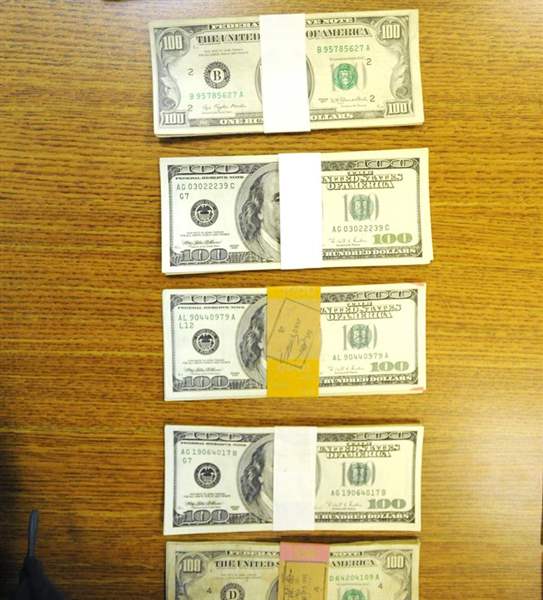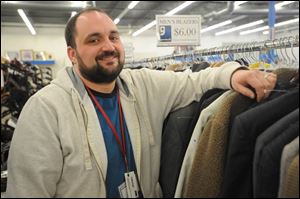
Workers find $43K in pockets of donated clothing
1/31/2014
Mr. Gedelian came upon a wallet and several envelopes containing what he knew to be a significant sum of money while sorting through donated clothes.
ASSOCIATED PRESS

Tyler Gedelian, manager of the Monroe Goodwill store.
MONROE, Mich. — Workers going through donated clothing at a Michigan thrift store turned up more than $43,000 in the pockets of suits and a robe.
Goodwill manager Tyler Gedelian told The Monroe Evening News (http://bit.ly/1aMkJA9 ) that he sometimes finds loose change in clothing, but nothing like what happened Wednesday at the Monroe store. Stuffed in envelopes in the pockets were tidy stacks of $100 bills.
“We might find a quarter in somebody’s jeans,” he said. “But that blows my mind.”
The 29-year-old called police, who tracked down the man who donated the clothes. That person had been cleaning out an elderly relative’s closet and took the clothes to Goodwill; he didn’t know there might be money hidden in them, the newspaper reported.

Mr. Gedelian came upon a wallet and several envelopes containing what he knew to be a significant sum of money while sorting through donated clothes.
That man asked not to be identified.
Goodwill job coach Laura Pietscher was helping Gedelian sort the clothes at the time of the discovery. She was organizing the suits, which were kept in dry cleaner bags, when she also came across some envelopes. She and Gedelian then searched the rest of the clothes.
“My biggest concern was getting the money back to the rightful owner,” Gedelian said. “I certainly can’t imagine losing that kind of money. I was so nervous having so much of someone else’s money.”
When an officer arrived, he brought a small zippered bag to transport the cash. When Gedelian saw the officer, Gedelian said had one thought on his mind: “You’re gonna need a bigger bag,” he said.
At the police station, Sgt. Chris Miller sorted the cash. The money was in $100 bills banded together in packs of 10. Some of the bills were dated in the 1930s, and among the envelopes was a wallet. Police used that to track down the person who dropped off the clothes.
“It would have been extremely easy to take the money and walk away,” Miller said. “It’s reassuring to know there are people in this world who are willing to do the right thing.”